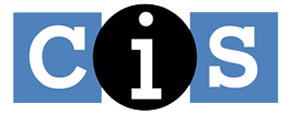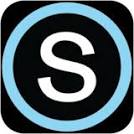CS 103 SyllabusAnimation, the Web, and Security: Three Views of ComputingFall 2012CIS DepartmentSaint Vincent CollegeGeneral Information
DescriptionThis is an introductory, non-majors course, though sometimes beginning CIS majors take this course. Students learn how to create animated objects and worlds, tell stories, and even create games, all using the popular Alice software. Second, students learn a few key ways of creating web pages. This might lead into further webpage coursework, or even a career. Finally, computer and network security issues are investigated. This includes problems such as identity theft, spyware, botnets, and phishing attacks, as well as how to defend against them. It is not open to CIS majors without departmental approval. Why Take This Course?The main purpose of this course is to introduce the student to three areas of computing that are useful, fun, and might lead to additional study and possible careers. No PrerequisiteAs an introductory course, this class has no prerequisite. However, the student should have at least a little familiarity with personal computers. Thus the student should know how to start a PC and how to start a program on a PC. No prior knowledge of programming, software development, animation, web development, or computer security are needed in order to take this course. Good logical thinking skills are important in this course. Students' abilities in high school algebra and precalculus, for example, are often good indicators of this. The hope is that students will exercise and increase their logical thinking skills in this course. The TextThe text covers the animation portion of the course. The instructor will provide additional material on animation and will provide most of the material for the other two main topics. Students may be asked to bring in some materials to aid in the course as well. Core GoalsThis course contributes especially toward the following core curriculum goals, listed in order of emphasis. Both written and oral communication skills will be worked on in this course through projects, homework, tests, class participation, etc.
CIS Department GoalsThis course contributes to the following departmental goals, listed in order of emphasis.
Course GoalsSpecific course goals include the following. These goals will be assessed by means of assignments, class participation, quizzes, and tests. Informal student comments are also considered.
Grading and Course Policies
Letter grades will be assigned according to the scheme found in the current College Bulletin. Exams will be announced in advance (but quizzes could be given at any time). Due to the technical nature of the course, the exams will be of the open-book, open-notes variety. Calculators may be used on the exams and quizzes. Cell phones and pagers should be turned off and put away during exams. On a test students may only use the test itself, books, notes, handouts, calculators, pens, pencils, and erasers. Calculators may not be passed between students. No laptops or other computers may be used on an exam or quiz unless expressly permitted by the instructor for a particular exam or quiz.
Both the instructor and students are expected to do their best to produce a good class and to treat each other with respect. This includes many factors, such as listening when someone else is speaking, trying to understand what others are saying, being of assistance to others, etc. It definitely does NOT include making fun of others. On a practical level, do your best to improve your grade: read the text, attend class, do the work, ask questions, and try to answer questions in class! This is not a spectator sport! It requires active participation and repeated practice. If you begin to feel lost, consult one of the tutors, see the instructor, or work through the difficulties with the help of another student in the course. Do not let yourself get behind. In fact, one key to academic success is to start early on homework and other tasks. Last-minute miracles seldom work! Note in particular that attendance is expected. Student performance is bound to deteriorate when classes are missed. In order to emphasize the importance of attendance, the policies outlined after this paragraph will be used.
Intellectual honesty is important at Saint Vincent College. Attempts to pass off the work of another as one's own, or group work as one's individual work, will result in action appropriate to the seriousness of the situation. All cases of apparent intellectual dishonesty are referred to the college administration. In this course, students are expected to do entirely their own work on the exams and quizzes. Projects and homework are to be done largely by each individual unless the assignment specifies that it is a small group assignment. On each homework or project that is not of the small group type, 80% or more of the work should be your own. It is reasonable to ask questions or get ideas from others in the class, but this should account for no more than about 20% of the work. Never simply copy someone else's work, as that would be considered cheating and does little to help you to learn the material. Remember that you are responsible for knowing how to solve the assignments and that you will have to face the test questions on your own. Be sure to read and follow the CIS Department Policies, available under the CIS Department Web Page. (This statement covers especially the proper use of departmental computing facilities, policies concerning your web pages, etc.) Be sure to read the Regulations section of the College Bulletin (which covers such things as grading, academic honesty, etc.) and the Student Handbook (which covers academic honesty, classroom etiquette, etc.). Students with disabilities who may be eligible for academic accommodations and support services should please contact the Associate Dean of Studies, Mrs. Sandy Quinlivan, by phone (724-805-2371), email (sandy.quinlivan@email.stvincent.edu) or by appointment (Academic Affairs-Headmaster Hall). Reasonable accommodations do not alter the essential elements of any course, program or activity. If the instructor needs to cancel class, every effort will be made to send an email message to students' Saint Vincent email accounts. |
 |
||
Computing & Information Systems |
|

 Search CIS Site
Tutorials
Search CIS Site
Tutorials
|